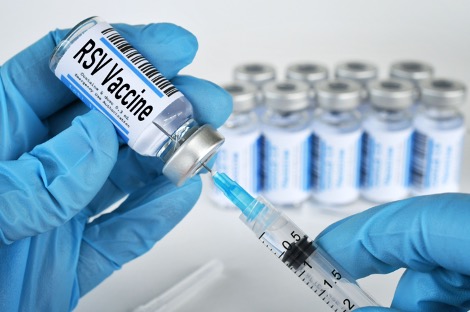Sanofi Issues Update on Shortages of Beyfortus for Respiratory Syncytial Virus
November 9, 2023
Source: drugdu
 294
294
Pharmaceutical Executive Editorial Staff
Due to a higher than anticipated demand, Sanofi is carefully managing distribution of 50 mg doses of Beyfortus in the private market to fulfill existing orders and provide equitable access to remaining doses for the vaccine that protects infants against respiratory syncytial virus.
Sanofi has announced that a higher than expected demand for nirsevimab-alip (Beyfortus) 50 mg and 100 mg injection to protect infants against respiratory syncytial virus (RSV) has caused a change in the company’s distribution plan. Sanofi said it developed an aggressive supply plan to outperform prior launches of pediatric vaccines, but the demand exceeded the supply.
 Image credit: MargJohnsonVA | stock.adobe.com
Image credit: MargJohnsonVA | stock.adobe.com
“We previously communicated that new orders for the 100 mg dose were no longer being accepted, as the demand exceeded the available supply for the season,” Sanofi said in a statement.1 “Currently, due to demand, we are carefully managing distribution of the 50 mg doses in the private market to fulfill existing orders and provide equitable access to remaining doses. Sanofi is in contact with providers about distribution plans.”
Beyfortus is a monoclonal antibody that prevents RSV lower respiratory tract disease in newborns and infants under 8 months of age born during or entering their first RSV season
Last month, the CDC issued a set of recommendations to address the limited supply of Beyfortus.2 The CDC recommended prioritizing available Beyfortus 100 mg doses for young infants aged <6 months and those with underlying conditions that place them with the greatest risk of severe RSV disease. The CDC did not change their recommendations for the 50 mg doses.
The CDC also advised against using two 50 mg doses in infants weighing ≥11 lbs to maintain the supply of 50 mg doses for infants weighing <11 lbs. Healthcare providers are urged to remain cognizant that some payers may not cover the cost for two 50 mg doses in an individual infant. The CDC is also asking providers to stop using Beyfortus in palivizumab-eligible children aged 8–19 months during the 2023–2024 season, as per American Academy of Pediatrics (AAP) recommendations.
The FDA approved Beyfortus in July 2023 for neonates and infants born during or entering the first RSV season, and in children up to 2 years of age who remain vulnerable to severe RSV disease through their second RSV season.3
In August, the CDC Advisory Committee on Immunization Practices (ACIP) voted 10 to 0 to recommend the routine use of Beyfortus for the approved indication. ACIP also voted unanimously to recommend routine use of Beyfortus in infants from 8 to 19 months of age with an elevated risk of severe RSV who are entering their second RSV season. Additionally, the committee voted unanimously to include Beyfortus in the Vaccines for Children program.
Sanofi and the CDC have yet to announce a specific timeline to resolve the shortage, the causes of which remain unclear.
“We were reassured that supply would not be an issue, but they didn't ask us what we thought demand would be,” Sean T. O'Leary, University of Colorado Anschutz Medical Campus and Children's Hospital Colorado, Aurora, CO, USA, chair of the American Academy of Pediatrics Committee on Infectious Diseases, told The Lancet.4 “I would've predicted pretty high demand. I think probably too much was made of vaccine hesitancy and vaccine refusal [...] with people refusing COVID vaccines.”
At a cost of $495 per dose, the price tag for Beyfortus has created challenges for care providers, as many have expressed some uncertainty regarding reimbursement for doses of Beyfortus that were purchased during the 2023–24 RSV season.
“It is inescapable that the high cost of this product will result in disparities in access, which will likely result in downstream disparities in severe RSV among infants and children," Christina Rostad, Pediatric Infectious Diseases, Emory University School of Medicine and Children's Healthcare of Atlanta, told The Lancet.4 “Currently, there are two key barriers to nirsevimab access for infants: the supply shortage and the high cost of the product. While it is hopeful that the supply shortage can be quickly addressed during this respiratory season, the high cost remains a barrier that must be directly confronted if we are to ensure equitable access for all eligible infants and children.”
Read more on
- The first subject has been dosed in the Phase I clinical trial of Yuandong Bio’s EP-0210 monoclonal antibody injection. February 10, 2026
- Clinical trial of recombinant herpes zoster ZFA01 adjuvant vaccine (CHO cells) approved February 10, 2026
- Heyu Pharmaceuticals’ FGFR4 inhibitor ipagoglottinib has received Fast Track designation from the FDA for the treatment of advanced HCC patients with FGF19 overexpression who have been treated with ICIs and mTKIs. February 10, 2026
- Sanofi’s “Rilzabrutinib” has been recognized as a Breakthrough Therapy in the United States and an Orphan Drug in Japan, and has applied for marketing approval in China. February 10, 2026
- Domestically developed blockbuster ADC approved for new indication February 10, 2026
your submission has already been received.
OK
Subscribe
Please enter a valid Email address!
Submit
The most relevant industry news & insight will be sent to you every two weeks.



